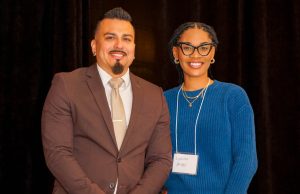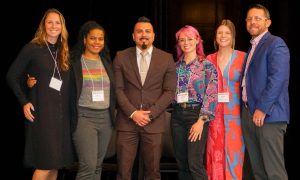
Presentations and discussion
Networking and connecting
Learning and workshops
Thank you for attending Data Day 2025! Data Day is an annual event, hosted by Data You Can Use. In 2025, Data Day: The Wealth of Data will explore how data can be harnessed to expose and understand persistent racial disparities in wealth and prosperity. Through dynamic presentations, panels, and workshops, participants will examine how data-driven insights can inform equitable policies, practices, and systems change. Join researchers, practitioners, advocates, and community leaders as we unlock the power of data to drive more just and inclusive economic outcomes.
Keynote: On Wealth, and Love
“New local data on wealth makes conditions in our communities – and their consequences – more clear than ever. It condenses, into a single calculation, the social and economic successes and injustices of the past, uneven opportunities in the present, and hopes for greater shared prosperity in the future. Local wealth data provides unprecedented clarity on the pathways to solutions and guidance on the scale needed to transform our cities and the lives of real people. Knowing the nature of our problems and the level of effort needed to address them, we have the power to apply the same creativity, determination, and skill that generated tremendous wealth in our nation to solving those very problems. The remaining question is: do we have the love necessary to create a nation where all people flourish?
Do we have enough love for our city, and love for our people, to do what is necessary to ensure greater prosperity for all?”
– Lamar Gardere
Data Day 2025 Recap

Our Keynote – On Wealth, and Love – was presented by Lamare Gardere, Executive Director of The Data Center in New Orleans, Louisiana. On wealth, Gardere shared findings from The Data Center’s ongoing project of calculating local estimates of wealth, highlighting the racial and economic disparities that are present in the New Orleans Metropolitan Area. In addition to highlighting wealth gaps, he also demonstrated how the local wealth data can be used to move from good work – that already exists in our communities – to transformative work that reshapes our social and economic systems. Given we already possess the data and tools necessary to create this change, Gardere ended his talk by asking the audience: do we have the love necessary to create a nation where all people flourish? Do we have enough love for our city, and love for our people, to do what is necessary to ensure greater prosperity for all?
In his keynote, Gardere also announced the launch of the Open Wealth Consortium (OWC), which provides local wealth estimates for metro areas across the country. Data You Can Use is a founding member of OWC.
Lamar Gardere, Executive Director – The Data Center
Lamar Gardere is the executive director of The Data Center – a data intermediary committed to providing objective and well researched data for informed decisionmaking. As executive director, he holds The Data Center’s vision of a more prosperous and inclusive region through the democratization of data. Lamar also serves as The Data Center’s chief advocate for technology designed to enable greater data sharing and collection and the effective use of advanced statistical methods in New Orleans.
Previously, as the City of New Orleans’ Chief Information Officer, he was nationally recognized for working to develop the City’s first data policy and the extensive data resources now available through the City’s Open Data portal. Earlier years were spent as a researcher with the Georgia Institute of Technology and with Intel Corporation’s research division developing solutions for the challenges associated with an increasingly mobile, connected, and computationally rich society.
A New Orleans native, Lamar earned a Master of Science in Computer Science degree in ubiquitous computing from Georgia Tech and a Bachelor of Science degree in computer science from Xavier University of Louisiana.
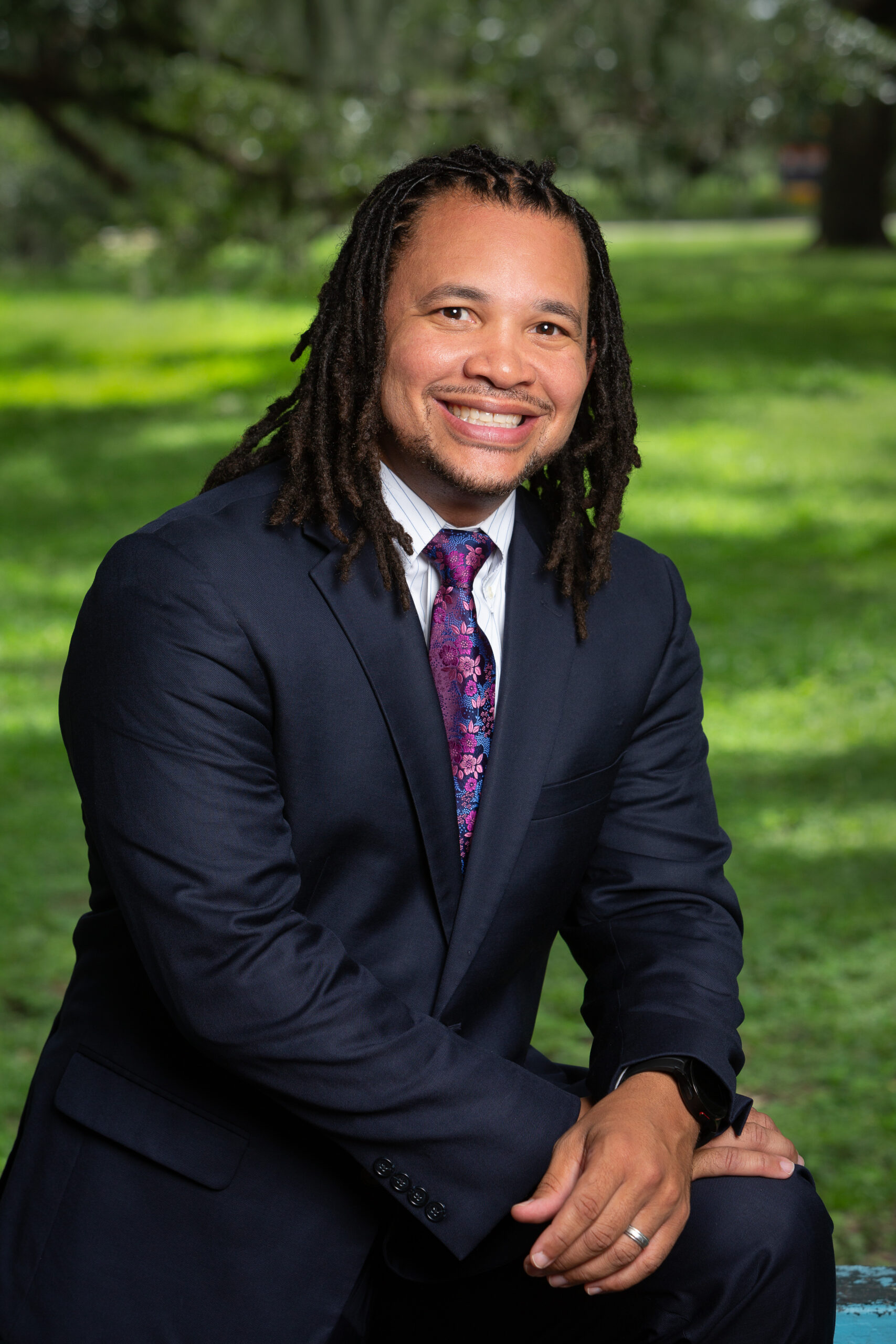
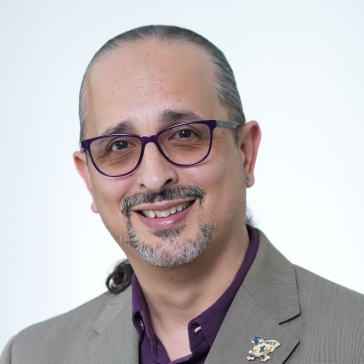
Keynote Q&A Moderator
Ian B. Bautista, Senior Director of Civic Engagement, Greater Milwaukee Foundation
Ian B. Bautista serves as the Senior Director of Civic Engagement at the Greater Milwaukee Foundation. He has worked his entire career in the nonprofit and public sectors on the local, regional and national levels. Bautista resides in Whitefish Bay with his wife (Elsa) and daughter (Iana). Ian serves as Chair of the Board of Data You Can Use.

Data Dream Finalists
Each year at Data Day, Data You Can Use awards community organizations Data Dream Awards. The winners receive 6-9 months of support from the Data You Can Use staff on a project that enhances their capacity to effectively collect, analyze, and use data to advance their organizations’ missions. This year, four finalists presented their data dream at Data Day: Citizen Action, My Way Out, NourishMKE, and Riverworks Development Corporation. After the presentations, the Data Day audience was given the opportunity to vote for their People’s Choice Data Dream winner.
Citizen Action of Wisconsin organizes people across the state to
achieve social, economic, and environmental justice. Their data
dream is to map and analyze household energy burden and
housing upgrade needs across Milwaukee neighborhoods. By
combining utility burden data, income levels, housing conditions,
and access barriers, they will be able to prioritize outreach and
funding for home weatherization and electrification. This will
ensure equitable investment and improve program effectiveness.
My Way Out empowers justice-impacted individuals by connecting
them with community resources, supportive service providers, and
employers. Their mission is to reduce recidivism, strengthen
communities, and keep families together. My Way Out’s Data Dream is to document and demonstrate how working with credible
messengers—individuals with lived experience—accelerates reentry
success, builds empowerment, and reduces recidivism.
NourishMKE is a network of free food centers building
community through nourishment. Their Data Dream is to
better use data for storytelling and program design, helping
them build stronger, more responsive food programs during a
time of dramatically shifting funding opportunities.
Riverworks Development Corporation (RDC) drives social and
economic development by aligning residents and businesses
with specialized resources that strengthen Harambee,
Riverwest, and surrounding communities. Their Data Dream
is to create a unified system that integrates client-level data
across their core services into one central system to improve
efficiency, coordination, and long-term impact.
This year, the two Data Dream winners are Citizen Action and NourishMKE. Citizen Action’s data dream is to map and analyze household energy burden and housing upgrade needs across Milwaukee neighborhoods. By combining utility burden data, income levels, housing conditions, and access barriers, they will be able to prioritize outreach and funding for home weatherization and electrification. This will ensure equitable investment and improve program effectiveness. NourishMKE’s data dream is to use data better for storytelling and program design, helping them build stronger, more responsive food programs during a time of dramatically shifting funding opportunities.
Ignite Presentations
The Ignite presentations are consistently highlighted as a crowd-favorite feature at Data Day! Ignite presentations are lightning presentations, where the presenter is only given 5-minutes to highlight a data project. This year, we heard from a variety of individuals, community organizations, and nonprofits about their research project and data tools, including: Christopher Peters, the Milwaukee Turners, the Roberto Hernandez Center, Rooted & Rising, and Clean Wisconsin.
Reducing Barriers for Occupational Licensure in Healthcare for Justice Involved Persons, Presented by Christopher Peters
Spotlighting the Role of the Roberto Hernández Center: Inspiring Identity, Impact, and Institutional Change at an Emerging Hispanic Serving Institution, Presented by Toriah Haanstad
Data-Driven Assessments: Milwaukee’s Fire & Police Commission Monitoring Program, Presented by Dr. Emily Sterk and Nickolas X Doherty
Resident-led Data and Action to Improve Housing Conditions, Presented by Adrian Spencer
Examining Environmental Determinants of Health in Milwaukee, Presented by Paul Mathewson, Ph.D., and Kayla Rinderknecht
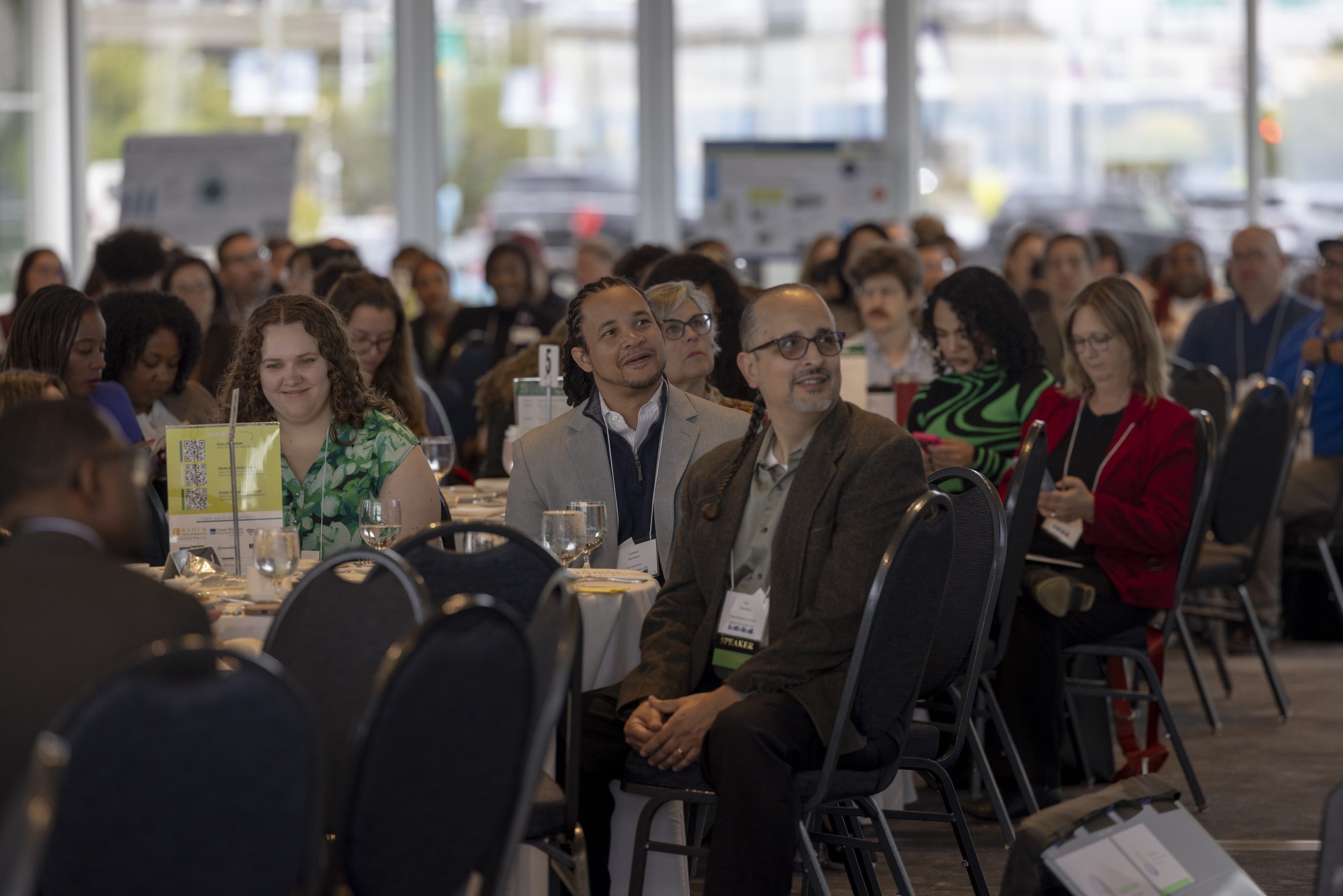
Workshops
What’s YOUR Impact? An Introduction to Measuring the Results of Your Work
Kathleen (Katie) Pritchard, Former Data You Can Use President
Impact is about more than what you wish for. It’s about what’s different because of what you’ve done. Learn the basics of gathering the evidence you need to demonstrate that your work is effective. Walk away with an improved understanding of a theory of change and logic models, and tips of the trade for building a better survey.
Local Data Panel: A Conversation with Ignite Presenters
Amanda Beavin, Moderator, Data You Can Use Program Manager, Community Data & Research
This panel will re-convene the Ignite presenters to take a deeper dive into their projects, spanning the topics of environmental health, housing, public accountability, healthcare, and education. Following our theme of The Wealth of Data, panelists will be asked to reflect on the ways their data projects can be used to understand and address disparities in the Milwaukee community and beyond. Other topics of discussion will include common challenges faced when working with data, strategies and best practices for transforming data into action, and audience questions.
Building & Using the Milwaukee Wealth Index
Presented by, Haleigh Tomlin, Senior Data Analyst, The Data Center and Rohan Katti, Program Manager, Data Systems; Data You Can Use
Building off the keynote, this workshop will take participants deeper into the data and tools behind local wealth measurement. Highlighting the powerful insights about prosperity, opportunity, and equity, this session will walk participants through the technical foundations of creating a Milwaukee Wealth Index. Participants will hear how this partnership came to be, learn the methodology of the index, examine the report findings in detail, engage with a national wealth map, and discuss how this data can be used to inform and drive action.

Full Program
The Data Day 2025 program is now available! This year’s lineup is filled with opportunities to learn, connect, and be inspired. The day will kick off with ignite presentations from local professionals on topics ranging from healthcare equity and housing justice to campus change, community safety, and environmental health.
Attendees will also hear from this year’s Data Dream Finalists: Citizen Action of Wisconsin, My Way Out (returning for the second year in a row), NourishMKE, and Riverworks Development Corporation (RDC). Their projects span energy equity, reentry support, food access, and community data systems. Each will demonstrate the powerful role of data in driving change.
In the afternoon, participants can take part in workshops including What is YOUR Impact? An Introduction to Measuring the Results of Your Work led by Katie Pritchard, the Local Data Panel with Ignite Presenters moderated by Amanda Beavin, and Building and Using the Milwaukee Wealth Index presented by Rohan Katti and Haleigh Tomlin.
Together, these sessions showcase the creativity, innovation, and collaboration that make Data Day memorable.
Community Advocate Sponsors



Community Sustainer Sponsors


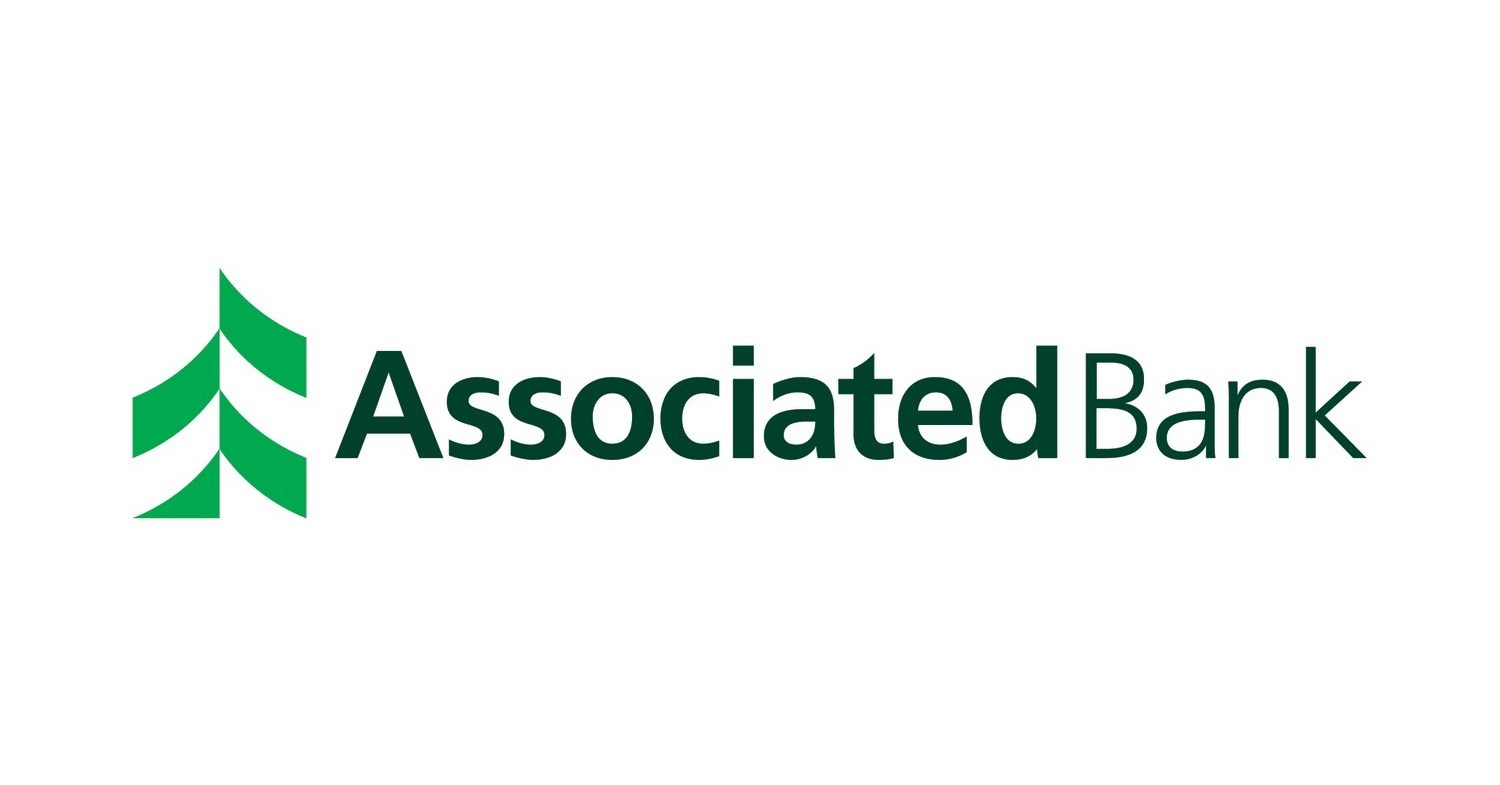
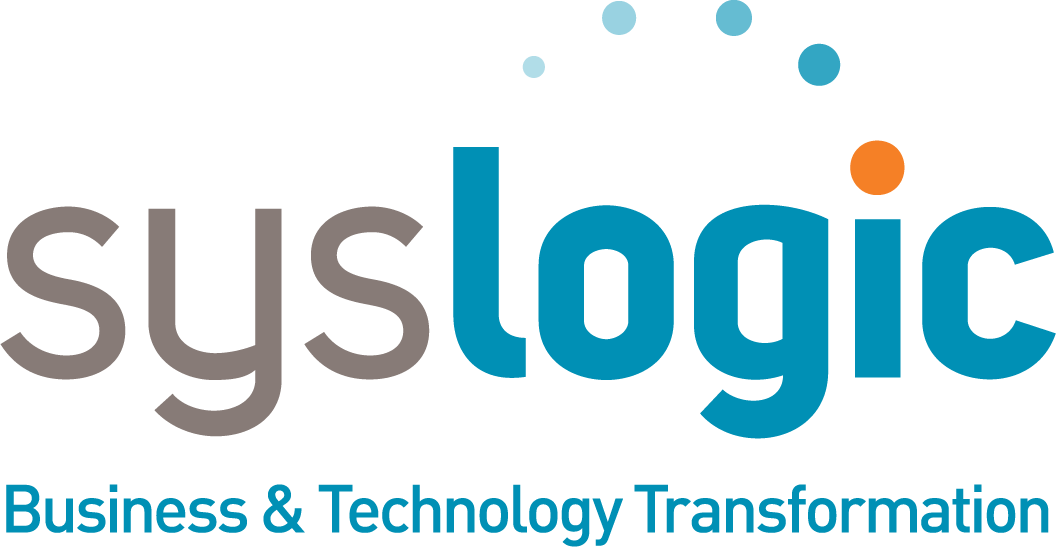
Community Partner Sponsors
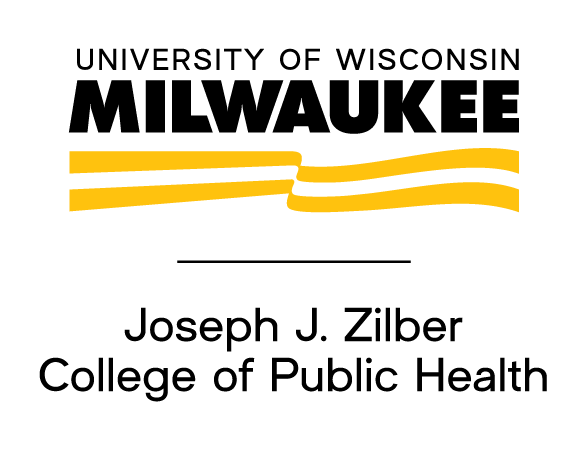
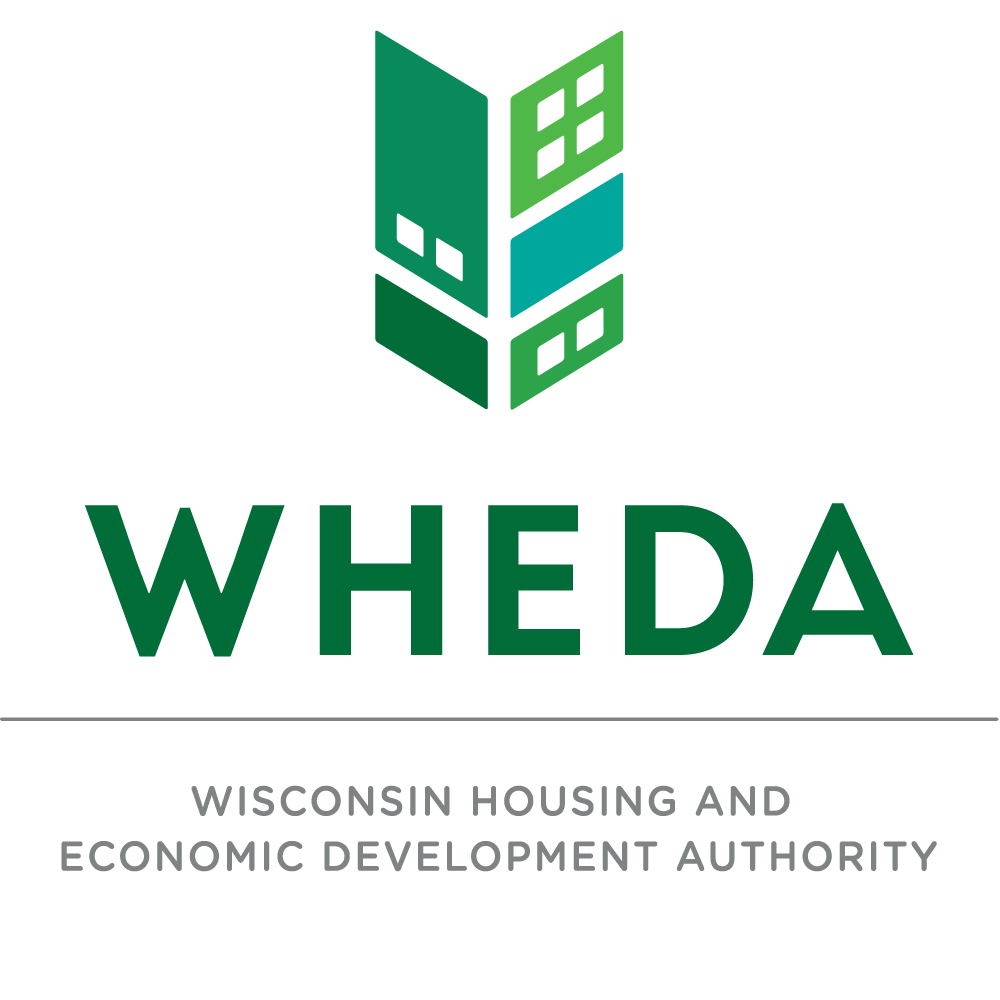
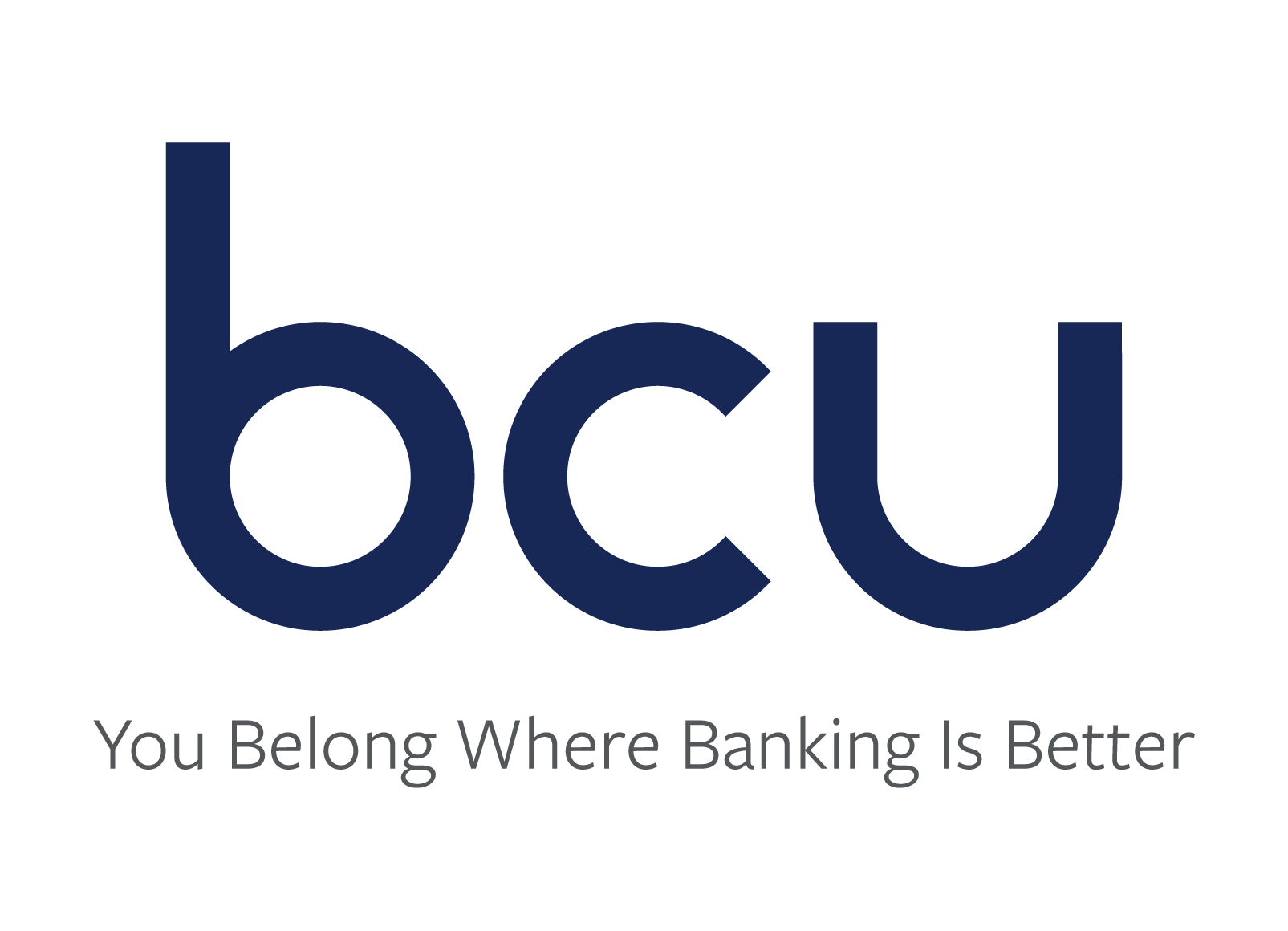
Learn about past Data Days!
2024 - Measures and Movements: Using Data to Spark Change
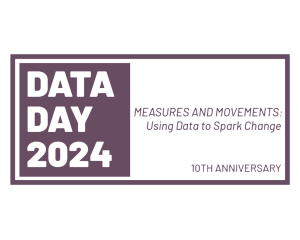
Data Day 2024 marked the 10th Anniversary of Data Day! On October 23rd, we welcomed over 400 attendees. The theme was “Measures and Movements: Using Data to Spark Change.” Our keynote speaker was Jesse Van Tol, the President and CEO of the National Community Reinvestment Coalition (NCRC). After the keynote address, Greg Wesley, President and CEO of the Greater Milwaukee Foundation, provided a response and moderated a Q & A session with Jesse. During the keynote, Jesse demostrated the online interactive data tool “Home Mortgage Disclosure Act Longitudial Dataset” which allows users to investigate the historical impacts of redlining and disinvestement through new geographical alignment across multiple decades of mortgage resporting over fourty years by census tract.
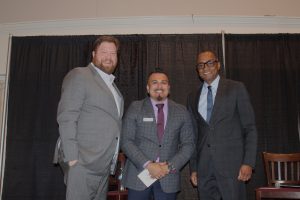
Data Dreams were awarded to two finalists at the event – Clean Wisconsin and Sherman Phoenix. Clean Wisconsin’s data dream is to provide a comprehensive, evidence-based evaluation of the local impact of green infrastructure in Milwaukee’s northwest side, incorporating an analysis of what environmental determinants of health are driving health inequities among the community and in the state of Wisconsin. Sherman Phoenix’s data dream is to employ precise measurement and data collection methods to effectively track the impact of our initiatives and validate the critical role we play in providing essential support to Black and brown small businesses seeking funding and assistance. They aim to identify the key indicators to substantiate their mission and facilitate the continuous improvement of their programs.
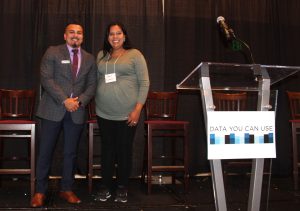
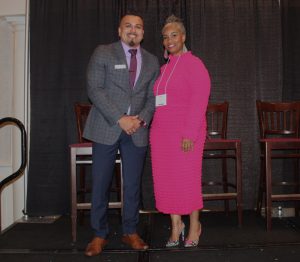
Moderated by Andrés Gonzalez, Vice President of Community Engagement and Chief Diversity Officer at Froedtert ThedaCare Health, Inc., the afternoon panel focused on the ways that local organizations used data to advance community health. The panelists represented organizations from sectors along the spectrum of social determinants, such as housing, education, healthcare, community-based development, and the built environment. The panel was made up of Antonio Butts, Executive Director of Walnut Way Conservation Corps, Anne Christiansen, Executive Director of Milwaukee Healthcare Partnership, Stephanie Maney-Hartlaub, PhD, Executive Director of City Year Milwaukee, and Teig Whaley-Smith, Executive Director of the Community Development Alliance. Highlights from the conversation include how each organization was utilizing data to advance their mission. For example, the Community Development Alliance compiles data on the individuals going through homebuyer counseling, grouped by neighborhood and political districts. They recently used this data as an advocacy tool with the Milwaukee Common Council when the city was considering cutting the home loan assistance budget considerably. Other examples of how panelists were utilizing data included measuring individual student progress, creating awareness and planning among community members, and guiding strategies for coalition-building.
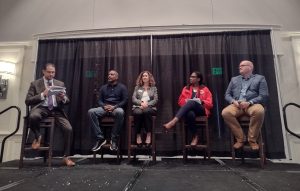
2023 - Journey to Justice: Using Data for Systems Change in Milwaukee
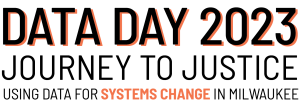
Data Day 2023 took place on October 18th at the Italian Community Center, with 300 attendees. The theme was “Journey to Justice: Using Data for System chance in Milwaukee.” Our two keynote speakers were Cashauna Hill and Dr. Tonya Howard Calhoun. Cashauna Hill is the Executive Director of the Redress Movement, and previously served as the Executive Director of the Louisiana Fair Housing Action Center. The Redress Movement is committed to leading a multi-racial movement that empowers communities to take director action to redress racial segregation. Dr. Tonya Howard Calhoun is the Director of the Environmental Defense Fund’s (EDF) Office of Community Collaboration & Engagement. EDF is a global nonprofit tackling climate change through bold, game-changing solutions which put people at the center.

Data Dreams were awarded to two finalists at the event – Milwaukee Community Land Trust and Milwaukee Food Council. The Milwaukee Community Land Trust’s data dream is to compare the wealth created for families in three different scenarios: rental / fair market / community land trust. Using Milwaukee housing historical data to create a ten year comparison of the different scenarios, they hope to to inform potential homebuyers’ decision-making and the general public’s understanding of the land trust model. The Milwaukee Food Council’s data dream is to create a social network map of the pre-existing programs, policies, organizations, and businesses within the complex food system of Milwaukee to determine if they are meeting public need. Through facilitating dialogue among organizations doing overlapping work, they seek to mitigate the historical and systemic barriers that inhibit individuals from accessing nutritious, healthy food by fostering an organizations of shared resources and collaboration.
